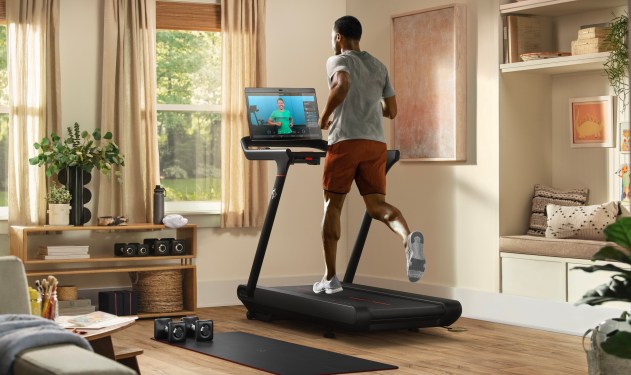It’s hard not to feel for Peloton’s new leadership team. The team has the unenviable task of attempting to right the ship following explosive growth and a subsequent messy crash back down to Earth. The reasons for the home exercise firm’s struggles are numerous, including some overly ambitious plans set at the height of the company’s pandemic-fueled success.
A Fundamental Rethink is Required
Setting things straight is going to require a fundamental rethink of many of Peloton’s core competencies, including, but not limited to its exercise equipment. The company has announced that it will no longer be manufacturing its own hardware, including the Bike and Tread lines.
This move marks a significant shift for Peloton, which had previously been committed to building out its own manufacturing facilities. In May 2021, the company announced plans to spend $400 million on a new manufacturing facility, only to pull the plug on the project earlier this year amid widespread layoffs and an executive shakeup.
Partnering with Rexon Industrial Corp.
Moving forward, Taiwanese manufacturer Rexon Industrial Corp. will be building Peloton’s connected home fitness systems. The firm specializes in power tools and fitness equipment, boasting partnerships with Bosch and Hitachi, as well as leading gym brands Precor and LifeFitness.
Peloton is spinning the news as an exciting new partnership, one that it claims will enable the company to "simplify our supply chain and variabilize our cost structure – a key priority for us." In a statement, Chief Supply Chain Officer Andy Rendich said:
"We are thrilled to be expanding our partnership with Rexon, a leading Taiwanese manufacturer with over 50 years of experience. Rexon has been with Peloton for many years and is a proven partner for our global operations. We plan to maintain a significant corporate and manufacturing presence in Taiwan with over 100 Peloton Taiwan team members who continue to play a key role in our engineering and manufacturing strategy."
A New Path Forward
The move marks a significant departure from Peloton’s previous plans, which were characterized by an ambitious push into new markets and product lines. While the company had previously claimed that it would be able to manufacture its own products at scale, the recent setbacks have forced it to reassess its strategy.
In a statement, new CEO Barry McCarthy noted:
"Today we take another significant step in simplifying our supply chain and variabilizing our cost structure – a key priority for us. We believe that this along with other initiatives will enable us to continue reducing the cash burden on the business and increase our flexibility. Partnering with market-leading third-party suppliers, Peloton will be able to focus on what we do best – using technology and content to help our seven million Members become the best versions of themselves."
A Glimmer of Hope?
Despite its struggles, Peloton has recently teased plans to introduce a rowing machine, which joins the also-recently-announced Guide, a set-top box that removes heavy equipment from the equation. The move marks a significant shift in strategy for the company, one that prioritizes innovation and flexibility over traditional product lines.
As the fitness industry continues to evolve, it remains to be seen whether Peloton’s new leadership team will be able to successfully navigate the challenges ahead. With its partnership with Rexon Industrial Corp., the company is taking steps towards a more agile and adaptable approach, one that prioritizes innovation and customer needs over traditional product lines.
What’s Next for Peloton?
As the company continues to navigate its challenging landscape, it will be interesting to see how Peloton’s new leadership team chooses to move forward. With its partnership with Rexon Industrial Corp., the company is taking a significant step towards a more agile and adaptable approach, one that prioritizes innovation and customer needs.
Will this new direction be enough to help Peloton regain its footing in the market? Only time will tell, but for now, it’s clear that the company’s leadership team has a daunting task ahead of them. With the fitness industry continuing to evolve at a rapid pace, Peloton will need to stay nimble and adaptable if it hopes to remain competitive.
Related Articles
- AINord Security founders launch Nexos.ai to help enterprises take AI projects from pilot to production
- SecurityClop ransomware gang names dozens of victims hit by Cleo mass-hack, but several firms dispute breaches
- AIAI researcher François Chollet founds a new AI lab focused on AGI
Latest in Hardware
- FundraisingSymbotic set to take over Walmart’s robotics business
- GamingNintendo teases Mario Kart as first Switch 2 title
- HardwareNintendo unveils the Nintendo Switch 2



